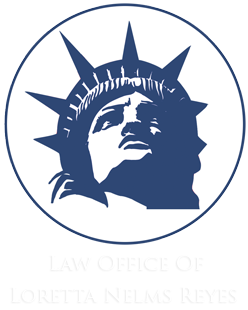Citizenship
Citizenship
Legal Permanent Residents who have had the “green card” five years (three years if residence was obtained through marriage to a United States citizen and the couple is still married), minus ninety days qualify to naturalize and to become United State citizens. The resident has to show that he or she has been present in the United States nine hundred days out of the past five years, that he or she has good moral character and is willing to take the oath of allegiance to the United States.
The resident also has to pass an English language reading and writing test. He or she must read one sentence of three and write one of three sentences in English. The resident must also be ready to answer ten of one hundred questions on civics and history of the United States. The resident must answer six of ten questions correctly to pass. The resident will have two chances to pass the tests. If part of the test is failed, the applicant will be tested again on that portion of the test from two to three months after the initial interview.
There are exemptions available for the language and civics/history tests. Once the application is approved, the resident must go to an oath ceremony and take to oath of allegiance to the United States, usually before a judge, along with other naturalization applicants. Only at that point has the resident naturalized and will be a United States citizen.
Waivers
Certain waivers are available to persons who do not qualify for relief in the United States. There are a number of waivers available, of which two are highlighted below.
Extreme Hardship
If a person is found to be inadmissible to the United States, for example, when the alien has been present out of status in the United States more than one year and leaves the United States, a ten-year bar to admission takes effect. This bar to re-admission may be waived if the alien can show extreme hardship to his or her United States citizen or Legal Permanent Resident spouse or parent should that person not be admitted.
Extreme hardship involves, for example, major medical problems of the petitioning relative who requires the alien’s presence in the United States, financial dependence of the petitioner on the alien relative, or major political unrest and risk of oppression in the foreign country, among other factors.
237(A)(1)(H)
This section of the Immigration and Nationality Act permits persons who otherwise would be inadmissible due to fraud or misrepresentation at the time of admission to retain their Legal Permanent Residence. The alien must be the spouse, parent, son or daughter of a United States citizen or Legal Permanent Resident. For example, if the alien was admitted as the unmarried son or daughter of a United States citizen when, in fact, he or she was actually married, this section of the law may allow for a waiver of inadmissibility.
